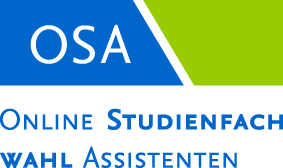B.A. Jewish Studies
Program Overview
The Jewish Studies bachelor's program at FUB focuses on Jewish history and literature of Late Antiquity, as well as on social and intellectual history in medieval and modern Europe. The program is structured in a reverse chronological order, starting in the Modern Era and later on delving into the historical roots of topics treated during the first year of studies. Our program will introduce students to as many aspects of Judaism as possible and will allow graduates to understand Judaism in all its complexity, analyze Jewish interaction with changing surrounding cultures and examine Judaism's place within each historical context.
All throughout the program, Judaism will also be studied through the lense of gender and diversity related aspects. Different gender roles will be reflected upon in their respective religious, cultural and social contexts.
In our Hebrew language classes, students will learn biblical, rabbinical, medieval and modern Hebrew. This will qualify them to read and analyze sources in their original language. Please take notice that Hebrew I and Hebrew II may be taken by students as part of their GPS/ ABV modules (not necessarily as part of Jewish Studies or the Affine Area of studies).
Prerequisites
Students must have obtained a higher education entrance qualification and know English at a B1 level as defined by the CEFR.
Program Structure
Start of studies: each winter semester
Standard duration: 6 semesters
Language of instruction: German for the most part
Jewsh Studies as a core subject (120 LP)
Students who choose Jewish Studies as their core subject must also select 30 points' worth of classes from the Affine Area of studies (such as History and Culture of the Middle East, Latin, Greek, Philosophy, General or Comparative Literature or the like), and 30 LP in GPS/ ABV classes to reach the required 180 LP total.
The degree is divided into three phases:
- Introduction. Modules of this phase will impart the foundations of Jewish Studies: the history of Jewish Studies as a discipline, an overview of Judaism throughout the Ages with a heavy focus on the Modern Period, basic knowledge of Hebrew, and methodics relevant to the discipline.
- Expansion. Modules of this phase are a smooth continuation of previous modules. Language and methodical skills will be developed and applied to the study of different parts of Jewish history. This phase also includes an introduction to literary and cultural history.
- Specialization. The focus will be on supra-epochal questions about Jewish history, the Hebrew Bible and its commentaries, and Jewish Thought.
Jewish Studies as a 60 or 30 LP Module
Students who have chosen another subject than Jewish Studies as their 90 LP core subject may add either "Jüdische Geschichte und Hebräische Sprache" (Jewish History and Hebrew Language) for 60 LP as a minor, or one of the two modules for 30 LP (Jewish History or Hebrew Language). It is also possible to take both 30 LP modules for 60 points instead of the fixed 60 LP module, should students want to focus more on language acquisition, as the 60 LP module places heavy emphasis on History.
Qualification Objectives
- Overview of central topics regarding the historical, social, religious and cultural development of Judaism from Antiquity to the present.
- Knowledge of the Hebrew language in its different stages.
- Degree qualifying for work in media, publishing, museums, research management, governmental and non-governmental organizations, education (not a teaching degree!), tourism.
- Qualification for pursuing a master's degree in Jewish Studies or related disciplines.
Advantages of Studying in Berlin
Students are offered access to extensive collections and archives (Staatsbibliothek Preußischer Kulturbesitz: Orientabteilung; Stiftung Neue Synagoge – Centrum Judaicum; Leo Baeck Archive at the Jewish Museum), specialized libraries (libraries at the Jewish Museum, House of the Wannsee Conference, Topography of Terror Documentation Center and the Jewish Community of Berlin) as well as to libraries at various universities in Berlin and Potsdam.
The significance of Berlin in Jewish history in the past and present, the numerous historic sites and memorials, and the many museums and research centers constitute important assets that are integrated into the curriculum of our B.A. program. In addition to these institutions, governmental and non-governmental organisations offer diverse internship opportunities.
B.A. Representative: Vera Meyer-Laurin
Tel. +49 30 838 52915
E-Mail meyerlaurin@zedat.fu-berlin.de
Study and Examination Regulations
Aktuelle Studien- u. Prüfungsordnung (SPO 2012), in German only.

